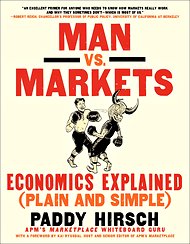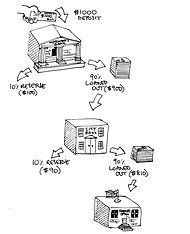Those arrested were charged with fraud, corruption and slander as part of a broad investigation tied to the famously secretive Vatican Bank.
Prosecutors say that the broker and the Secret Service agent had been plotting to help the priest bring 20 million euros, or $26 million, into Italy from Switzerland in a private jet, the ANSA news agency reported. It said that the 20 million euros belonged to “some friends of the monsignor.” The plot never went through.
In a statement, the Vatican spokesman, the Rev. Federico Lombardi, said that the priest, Msgr. Nunzio Scarano, had been suspended from his position at one of the Vatican’s main financial departments “more than a month ago, ever since his superiors were informed that he was under investigation.”
The Vatican spokesman said that the Holy See had not received any requests from the Italian authorities, but confirmed its “willingness for full collaboration,” and that the Vatican’s internal financial watchdog was following the matter and would take appropriate measures “if necessary.” Those would include requesting that the Vatican’s internal prosecutor open an internal investigation into the monsignor.
A Vatican official said Monsignor Scarano had been suspended from his position as an accountant at APSA, a department that oversees the Vatican’s real estate holdings, after prosecutors in Salerno opened a separate investigation into money laundering. The official indicated that the suspension was a sign that the Vatican was stepping up its internal vigilance.
Only priests, religious, Catholic institutions, employees of Vatican City State and diplomats accredited to the Holy See are allowed to have accounts at the Vatican Bank, known as the Institute for Works of Religion, but rumors have long swirled about whether accounts were used as fronts for other interests, including organized crime and Italian politicians.
In the past, the Italian prelates who controlled the Vatican Bank tended to see any inquires into possible malfeasance as an attack on its sovereignty. Pope Francis and his predecessor, Benedict XVI, have tried to make the Vatican Bank more transparent.
It was not immediately clear whether the Vatican was cooperating with Italian authorities or whether the arrests stemmed from several suspicious transactions — six in 2012 and seven in the first half of 2013 — that Vatican officials said they had flagged and brought to the attention of the Vatican’s own internal prosecutors.
The arrests Friday were the most dramatic events to emerge from the Rome prosecutors’ investigation into the Vatican Bank since 2010, when prosecutors seized 23 million euros from two external accounts used by the Vatican Bank and placed its then-president and director general under investigation.
It had been acting on a warning from the Bank of Italy urging Italian banks to be more vigilant in their dealings with the Vatican, which has not come into full compliance with European banking norms, making it costly and problematic for other banks to do business with it.
In recent years, the Vatican has been under pressure to meet European norms as a condition for using the euro. In 2010, it created an internal financial watchdog and last year appointed as its director a Swiss lawyer who had helped Liechtenstein clean up its murky banking system.
This month, Pope Francis appointed a trusted prelate to a top post at the bank and on Wednesday, the pope took a further step and created a committee of prelates and a Harvard Law School professor to report directly to him on the bank’s progress.
In an interview last month, the new president of the Vatican Bank, Ernst von Freyberg, who was appointed in February by Benedict in one of his last acts as pope, said that he was committed to making the bank more transparent and compliant.
Last year, a report by Moneyval, a monitoring agency under the Council of Europe, said that the Vatican had made progress but still needed to improve in terms of compliance and customer due diligence. The Vatican must submit a new progress report to Moneyval this fall.
Vatican officials have said that the Vatican needs a bank to help Catholic institutions operate around the world, including in politically sensitive areas. The bank had total assets of 7.1 billion euros under management in 2012, most of it invested in government bonds, and turned a net profit of 86.6 million euros.

Article source: http://www.nytimes.com/2013/06/29/world/europe/cleric-and-2-others-arrested-in-vatican-bank-investigation.html?partner=rss&emc=rss

